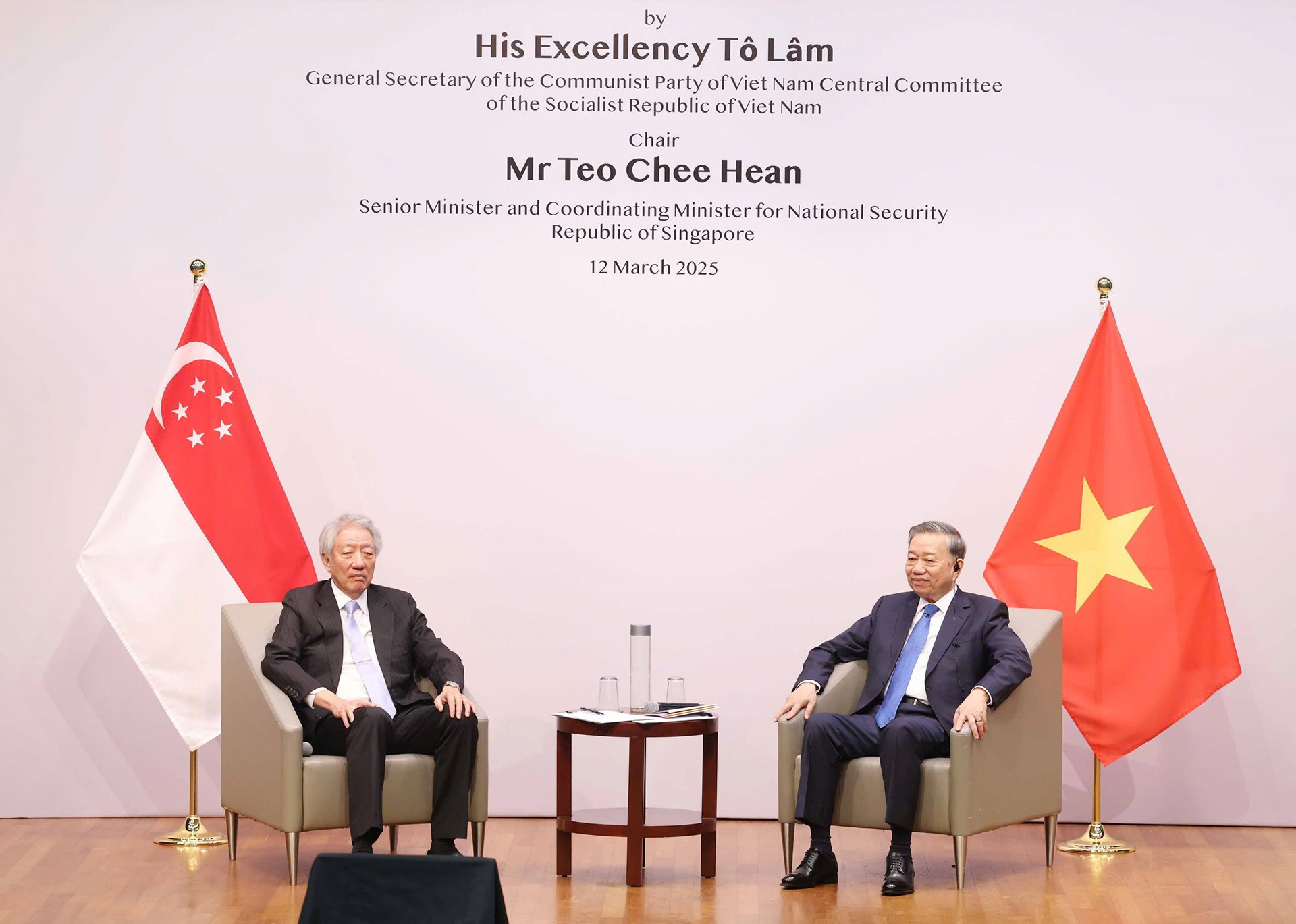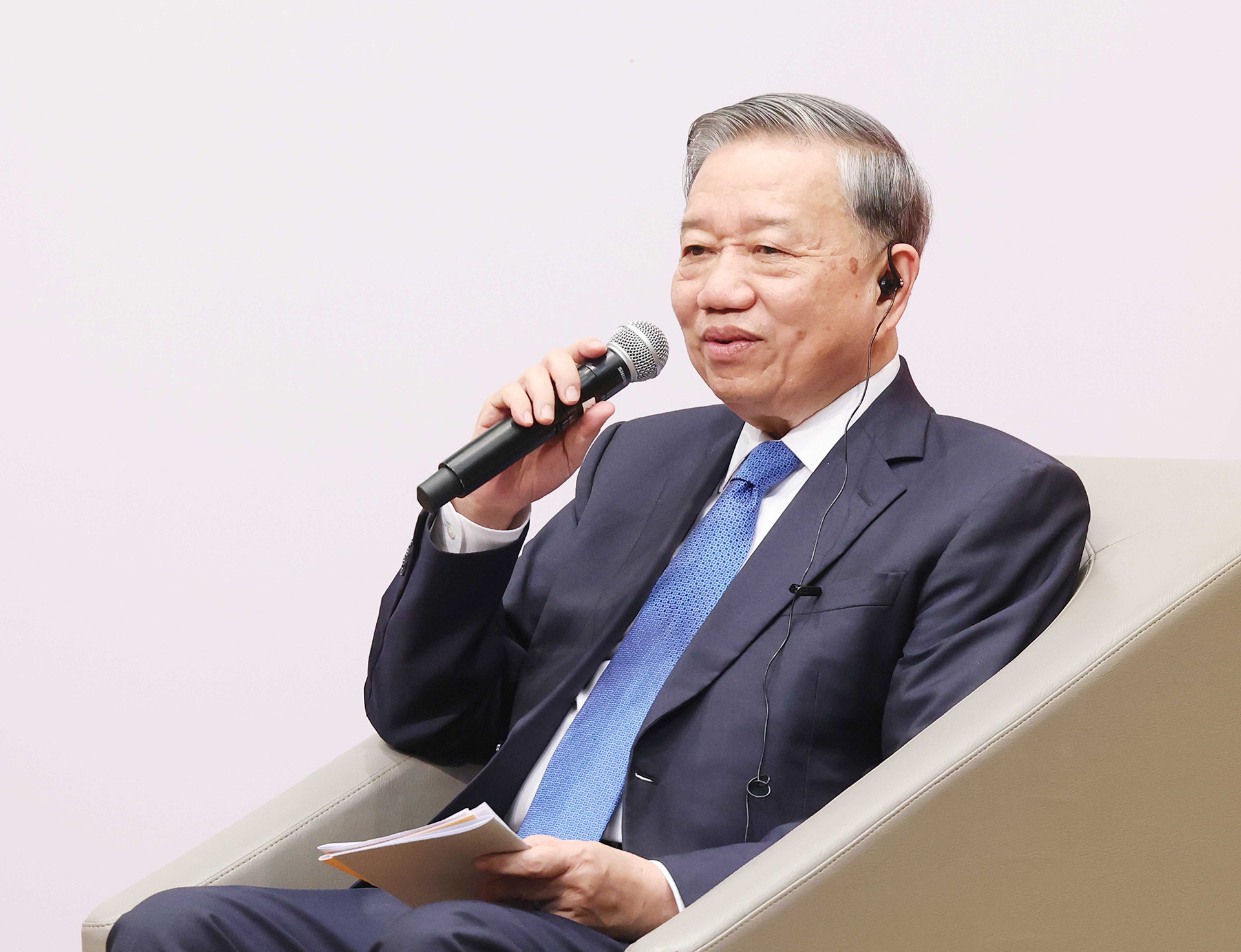
On March 12, General Secretary To Lam visited the Lee Kuan Yew School of Public Policy at the National University of Singapore and delivered a policy speech titled “Vietnam’s Policy on Scientific and Technological Development, Innovation, and Digital Transformation in the New Era, and Opportunities for Vietnam-Singapore Cooperation.”
The National University of Singapore (NUS) has longstanding collaborations with various institutions worldwide, including Vietnam, focusing on leadership development, startup support, and technological research. NUS hopes to further strengthen its cooperation with Vietnamese universities in the future.
Teo Chee Hean, Senior Minister and Coordinating Minister for National Security of Singapore, expressed pride in the achievements of Vietnamese students at NUS and stated that General Secretary To Lam’s visit would inspire further academic excellence.
Addressing faculty members, researchers, and students, General Secretary To Lam emphasized that after nearly one hundred years under the leadership of the Communist Party of Vietnam, eighty years of independence, and almost forty years of economic reforms, the country is entering a new historic era focused on national prosperity.
He stressed the importance of Vietnam’s development strategy aligning with global trends and advancements in civilization. To avoid the middle-income trap, Vietnam must embrace science, technology, innovation, and digital transformation while fostering self-reliance, national pride, and unity.
The national goals remain clear. By 2030, Vietnam aims to become a modern industrialized nation, and by 2045, when the country marks its centennial of independence, the goal is to achieve high-income status.
According to General Secretary To Lam, the key to reaching these milestones lies in a firm commitment to scientific and technological advancements. He emphasized that innovation and digital transformation are not optional but essential pathways for national development.
Despite Vietnam’s progress, global technological advancements pose new challenges. The country must rethink governance models, update policies, and implement revolutionary strategies to drive innovation and digital transformation.
Vietnam has conducted comprehensive evaluations of its current limitations to create bold, strategic policies that will foster a breakthrough in science, technology, and digitalization.

Vietnam and Singapore share complementary strengths that make them ideal partners for technological collaboration.
Singapore excels in advanced technology, management expertise, and investment resources, while Vietnam offers a large talent pool, a growing market, and significant development potential.
To strengthen bilateral cooperation, General Secretary To Lam proposed key areas for future collaboration, including joint scientific research projects, deeper partnerships between world-class universities and research institutes, mutual investment in digital transformation initiatives, and technology transfer and commercialization of research findings.
He reiterated Vietnam’s commitment to fostering an innovative digital ecosystem to enhance public services, governance efficiency, and scientific workforce development.
Reaffirming Vietnam’s commitment to international cooperation, General Secretary To Lam emphasized that nations embracing ambition and unity will shape the future.
He expressed confidence that with a strong national vision, political determination, and deep international partnerships, Vietnam, Singapore, and ASEAN will continue achieving remarkable technological and economic advancements.
At the event, General Secretary To Lam also addressed key questions regarding Vietnam’s talent attraction policies and strategies for scientific and technological innovation.
Tran Thuong